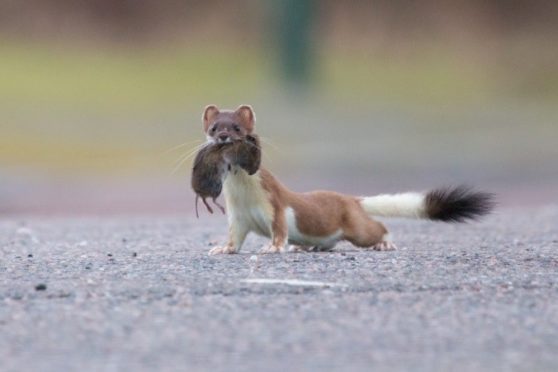Six specially-trained detection dogs are to be brought in to Orkney to help rid the islands rugged landscape of the invasive non-native stoat.
Training of the highly skilled canines has been entrusted with specialist trainers Kyrus, providing extensive training to ensure detection dogs are thorough in their searches for specifics.
Sarah Sankey, project manager of the Orkney Native Wildlife Project (ONWP) who will take ownership of the specially trained dogs, said the cull is required to ensure the longevity of the islands native wildlife.
She said: “The tourism industry is huge to Orkney with almost half of visitors coming to see its native wildlife.
“Orkney really does hold its own in terms of wildlife. The land represents less than one per cent of the UK but Orkney does have a huge population of some quite rare birds.
“Stoats have had a negative impact on the wildlife here so this is really being undertaken to protect our world-renowned and internationally important native wildlife.”
Once fully-trained, the dogs will be deployed on the Orkney Islands where they will detect the presence of the invasive species through their incredible sense of smell.
As stoats are known to be able to swim distances just shy of two miles, and in some cases recorded in New Zealand over three miles, the ONWP will seek to ensure that high-risk islands within close distance of the mainland are stoat free, allowing the natural wildlife to excel in peace.
Following any potential detections, humane traps will be laid to capture and kill the invasive stoats, before they will be analysed by researchers to establish more about their habits and lives.
The ONWP, a joint venture between RSPB Scotland, Orkney Islands Council and Scottish Natural Heritage, is anticipated to last five years.
Mrs Sankey added: “This is an ambitious project with a lot of work and expertise already involved.”
